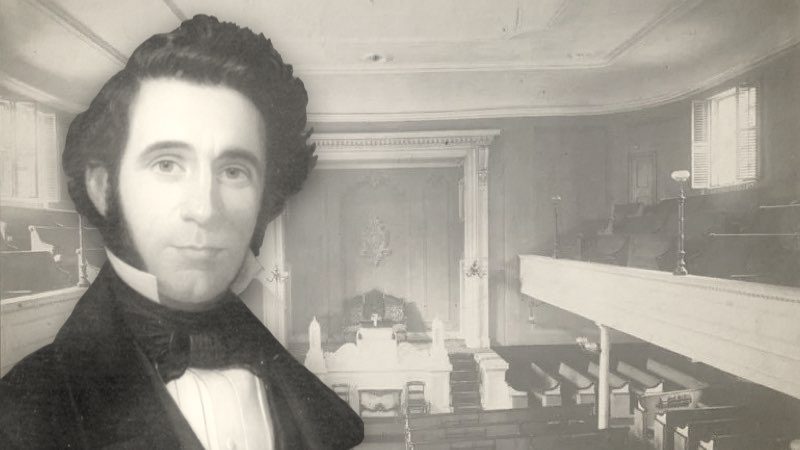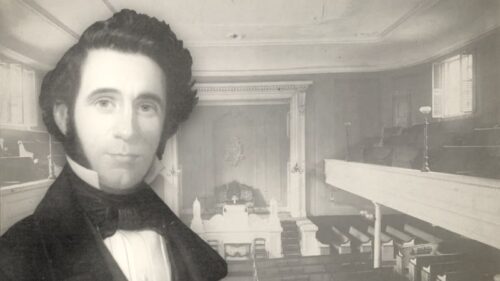-
Chapter 9—On Baptism, Answering The Proof For Infant Baptism Recorded In 1 Corinthians 10:2
Mr. Bridgman: “The preacher offered to pay the national debt, if we from the Holy Scripture produced baptized infants. He offered a real impossibility, for a supposed impossibility, and in that he was not wise nor honest neither; for no honest man will, at least ought, to put his hand to a bill he cannot pay when due. The 1 Cor. 10:2. tells me that many infants were baptized in, or rather by the sprinkling of the cloud and by the spray of the sea; you will be so kind as to forward the national debt by return of post." My Reply: 1. I said I would pay the national debt of England in four instalments within twelve months, if infant sprinkling, as a New…
-
9 Christian Worship
Religious faith expresses itself both in worship and in work. In such acts of religious service as may declare the soul's devotion to the Deity, and in such works as are believed to be pleasing to Him, and such as naturally grow out of the faith cherished, and correspond to the worship offered. Worship, properly speaking, is adoration and praise offered to God. The emotion is instinctive in a devout soul and tends to exalt and magnify Him to whom all honor and glory are due. It is offered in view of the glorious excellency of the divine character; and also because of what God has done for men. Both for what He is, and for what He does. Worship is usually attended with confession…
-
Chapter 8—On Baptism, Answering The Challenge Of Proving From Scripture Believer’s Baptism
Mr. Bridgman: "The Baptist minister who will shew me the plain unequivocal command for the immersion in water of a believer, as constituting water baptism, either as commanded by Christ, or his apostles under his authority, I tell him this, that in my own chapel, at my own expense I will have a pool made, and he shall be my baptizer—will you accept the challenge?" My Reply: In reply to this paragraph, I shall state some things that appear quite plain to me on the subject of believers' baptism, but I shall not pretend to a successful execution of the challenge, because that which may be laid down as a truth and proved so beyond any fair disputation by one person, may not be at…
-
8 Unusual Difficulties
In the maintenance of good order, and the administration of equitable discipline in a Church, there will at times arise cases of unusual difficulty; cases which require more than ordinary wisdom and prudence to manage justly, not to say satisfactorily; not so much, perhaps, because of the gravity of the offense, as because of the persistency of those concerned, the complications which arise in the progress of the case, the party spirit which may be engendered, and possibly, worst of all, the mistakes which the Church itself may make in the treatment of the matter. These mistakes thus give the culpable parties occasion to complain at the course pursued, even when they would not have condemned the final issue itself. I. A Divided Church. It…
-
Chapter 7—On Baptism, Answering The Charge Of Willfull Falsehood
Mr. Bridgman: "But the preacher more than implied that the command for believers only to be immersed in water is as plainly written in the New Testament, as those particular directions about the Ark, &c. were in the old. I appeal to his common honesty, and he seemed to be an honest man; but to that principle I appeal, and to his face I would say, and in God's presence I would say, You Know that is not the truth." My Reply: 1. This is carrying the point of hostility to a high pitch and to a great length. Wrong opinions may through mistake be with great sincerity entertained both of persons and things until the judgment be better informed, but a positively affirmed charge…
-
7 Church Discipline
Every organization which proposes to work smoothly, and yet efficiently, must have certain rules and regulations to be followed; certain laws for the individual members to obey. Failing in this—either without laws or with laws disregarded— all effort will go wide of the mark, and all endeavors, instead of succeeding and furthering each other, will counteract and interrupt each other; confusion will ensue, the wisest designs be frustrated, and the best laid plans become abortive. This is true everywhere. In the State, in the family, every association whether for business, politics, scientific, literary or art research or improvement, all must be regulated by laws adopted for the common good, to which obedience is to be rendered by the members. And the object sought to be…




